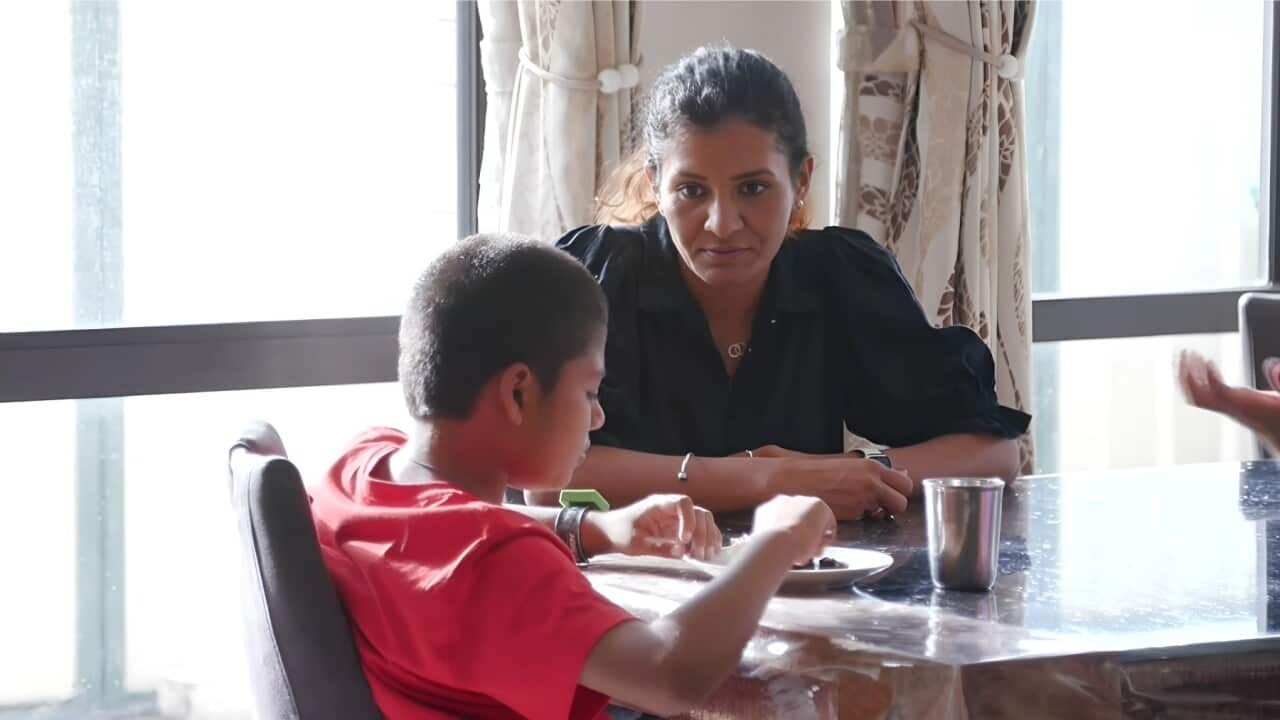TRANSCRIPT
The Australian government says it plans to establish a Centre for Disease Control, planning to spend more than 250 million dollars on a national public health body.
This comes as a federal government review shows that public trust has been eroded since COVID-19.
The shutdown of international borders, lengthy lockdowns and vaccine mandates were some of the contributing factors.
Australia's Prime Minister at the time, Scott Morrison declaring the vaccine roll out as "not a race".
“It's not a race, it's not a competition. I'm not interested in you know - this state - that state. I'm interested in Australians being vaccinated safely with appropriate care and support given to all of them.”
Four years since the start of the pandemic, an inquiry into the Commonwealth's Response to COVID-19 finds there are major lessons to be learned.
Mark Butler is the Health Minister.
"Like most countries frankly our pandemic plans were grossly inadequate for the scale of the challenge that COVID-19 presented to us. The report makes clear - for example that our plan such as there were - included no plan that would deal with the international closure of the international border.”
Some mistakes were costly.
One study estimates Australia’s delayed vaccine roll out had a direct economic cost of 31 billion dollars through additional lockdowns.
Mr Butler talks about the country's response during the pandemic.
“Our response to the pandemic was not as effective as it could have been. And as a result of the lack of plans, leaders particularly were placed in the invidious position to use the words of the report - of having to build the plan while it was flying.”
Treasurer Jim Chalmers talks about the inflammatory pressures coming out of the pandemic.
“Big decisions were taken, and big mistakes were made. Those mistakes were costly, and they were inflationary. Now a big economic substantial response was warranted by the pandemic, it was essential. But the report says and I quote "There was excessive fiscal and monetary stimulus provided through about 2021 and 2022 especially in the construction sector combined with supply side disruptions."“
Inconsistent responses and messaging between states and the Commonwealth and heavy handed restrictions had eroded the trust in governments.
While National Cabinet did prove effective, it also highlighted divisions.
At times there were contradictory explanations of decisions by leaders, further fuelling confusion and mistrust.
The vaccine mandates had the biggest negative impact on trust.
Health Minister Mark Butler highlights the lifelong consequences for different groups of people, from the elderly to the culturally and linguistically diverse.
“There are also more important insights at a specific level around the impact of the slowness of our vaccine roll outs, something that has been the subject to a lot of commentary. The failures in aged care, particularly in that first year in 2020 when so many residents of aged care facilities, particularly in Victoria and New South Wales were lost to us and the stark inequity between the experience of particular groups in a community - particularly different groups from a culturally linguistically diverse background. But also temporary visa holders.”
The inquiry did find that Australia's response was far better than that of other countries, but it does also highlight existing inequities.
And with the reality of another pandemic, this stark warning:
“A striking conclusion I think from this report though is that right now we are arguably worst placed as a country to deal with a pandemic than we were in early 2020. For a range of reasons. Firstly, because there has been really significant scarring on our healthcare systems and the health workforce. The workforce that is exhausted by the demands of once-in-a-century pandemic that's gone on for years. The APS, the Australian Public Service has lost key personnel who learnt a lot through that pandemic but have moved on from their positions often through exhaustion.”
That's because of the significant impacts on health services and government debts from COVID.
But the biggest concern is the erosion of trust.
“Crucially, the report says the number of the key points that I have already made about the lack of real time evidence based policy and the lack of transparency has driven a large decline in trust, which the panel members say and these are their words - means that many of the measures taken during COVID-19 are unlikely to be accepted by the population again.”
The recommendations stress the importance of better preparedness and co-ordination between governments.
Critical to that, the Labor's commitment to establishing a Centre for Disease Control, as they proposed recommendations for a potential pandemic in the future.













